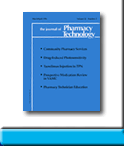 |
 |
Use of Low-Molecular-Weight Heparin for the Treatment of Venous Thromboembolism in Patients with Cancer: A Review of the Literature
Jamie M Pitlick, Andrew J Crannage, and Julie A Murphy
To request full article click here.
Objective: To evaluate the literature on use of low-molecular-weight heparin (LMWH) for the treatment of venous thromboembolism (VTE) in patients with cancer for the first 3–6 months of anticoagulant therapy.
Data Sources: A preliminary literature search of PubMed (1966–May 2009) was performed, using the MeSH database when possible, with the terms venous thromboembolism, venous thrombosis, pulmonary embolism, neoplasm, vitamin K antagonist, and low-molecular-weight heparin. Bibliographies of all articles retrieved were also reviewed.
Study Selection and Data Extraction: All studies published in English with data describing the safety and/or efficacy of LMWH in subjects with cancer for the first 3–6 months of anticoagulant therapy for VTE were included.
Data Synthesis: Five studies that met the above criteria were identified. When compared with vitamin K antagonists, LMWH therapy decreased recurrent VTE in subjects with cancer. Many of these studies had important limitations, including open-label design, relatively short duration, ineffective LMWH dosing, and small sample size.
CONCLUSIONS: The studies analyzed support the American College of Chest Physicians Evidence-Based Clinical Practice Guidelines’ recommendation for the use of LMWH for the first 3–6 months of anticoagulant therapy for VTE in patients with cancer. Specifically, in clinical trials, tinzaparin and dalteparin have demonstrated increased efficacy compared with vitamin K antagonists.
J Pharm Technol 2009;25:244-9.
ACPE Universal Program Number: 407-000-09-055-H01-P (Pharmacists)
To request full article click here.
|
|
|
||
|

